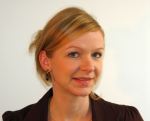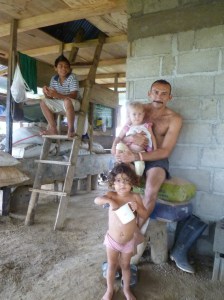5 January 2017
We have asked our Researching Security fellows to reflect on what it is like to do a PhD in the field of security, organised crime and violence, including what impact it has on their private life and what they would do differently looking back. Read this interview for a very personal view – one you won’t find in a student handbook.
Part 1: Doing a PhD in the field of security, organised crime and violence
What is the best and worst part of doing a PhD in the field of security, violence and organised crime?

Natalia Cervantes
Natalia Cervantes: Security, violence and organised crime are all incredibly pressing issues in my country, Mexico. Studying these themes empowered me to understand things are not as simple as portrayed. It also humbled me, realising how people cope and learn to live with violence situations. The downside of it all is feeling impotent. As a PhD researcher, you are there for a limited period of time, and there is little, or nothing, you can do to ameliorate people’s living conditions in this short time frame.
Jenna Muray de López: I also carried out my fieldwork in Mexico – in Chiapas, an area known for low-intensity armed conflict between the indigenous Zapatista movement and the Mexican state. The militarized environment and the ‘everyday violence’ that low-income Mexicans are exposed to greatly influenced how I approached questions of healthcare and state in a way I had not imagined.
Jorrit Kamminga: I like the level of complexity in all these areas. There are so many different layers and factors involved. For example, I did my PhD on alternative livelihoods in Colombia and there are many different reasons why farmers grow illicit crops. That makes it very challenging to come up with tailored public policies that produce good outcomes.

Susan Hopper-Flaemig
Susan Hoppert-Flaemig: I think the best part is doing research about some of the most challenging questions of our time. Creating peace in the 21st century is closely linked to finding new approaches of dealing with issues of insecurity and violence. I hope that our research can make a small contribution here.
How has your gender, ethnicity or nationality impacted on or influenced your research?
Verena Brähler: Being white, female and German certainly influenced my field research in Rio de Janeiro. Of all these characteristics, I would say being a foreigner made the biggest difference. I noticed that many Brazilian researchers had been forced to choose sides and either align with the narrative of the police/military/elite or the favelas/human rights activists/drug dealers. As a foreigner, I felt I didn’t have to choose sides and was allowed to speak to everyone.

Alternative livelihood recipients Jorrit met in rural Colombia
Jorrit Kamminga: For me as a foreigner in Colombia I wasn’t able to conduct the field research alone in some of the areas I visited. Sometimes the risks of doing field research are unclear or exaggerated but in some cases, for example in some neighborhoods of Medellín, it would have been a huge risk to go there by myself.
Natalia Cervantes: I think my nationality benefited my research. Being a Mexican doing fieldwork in Mexico meant that accessibility was not a prominent issue. I was able to speak the language and already familiar with research settings and costumes. However, gender had a definite impact on my research. I often felt like I was being patronised when I spoke with officials.
Jenna Muray de López: My gender and role as a mother were also central to my positionality in the field – I was researching maternal lives. I was limited in my interactions with men, which is a slight regret and gap in my data. Despite this I built up good relationships with the women in the neighbourhood. I respected the gendered spaces and have previous experience of the misunderstandings that can be caused as a white woman talking alone with other women’s men. Women’s curiosity about how white women bear and care for children was useful for me to understand what was important to them.
Read the full interview here.

 The day before the
The day before the 